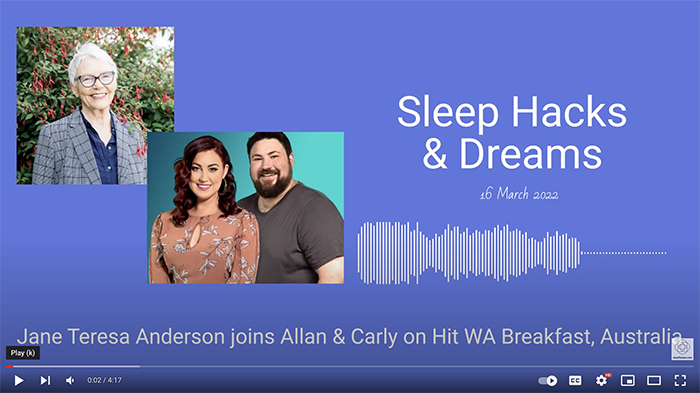How to get back to sleep.
How can you get back to sleep when you find yourself wide awake in the middle of the night?
There’s a very simple method that I use, either to get back to sleep or to fall asleep in the first place if I haven’t drifted off within a few minutes. Whenever I’ve recommended it to people, they’re always surprised that something so simple is so effective.
Perhaps you’ve woken up after a dream, and you’re on high alert, either because the dream was scary or because you’ve been laying awake thinking about it or busy writing it down.
Presumably you’re reading my blog because you’re interested in dreams, so you want to know how to remember those middle-of-the-night dreams and still be able to get back to sleep. You might want to grab your phone and record your dream as a voice memo, a quicker process than writing the whole dream down and ending up wide awake. Alternatively, take a few seconds only to jot a few keywords onto a paper notepad that you keep beside your bed. The keywords will jog your full memory of the dream in the morning. Then use my technique – coming up – to get back to sleep.
If you sleep for eight hours, around 60-90% of your dreaming time comes after the first six hours of sleep. If you regularly skimp on sleep, jumping out of bed after six hours, you’ll survive, but you’re more likely to thrive if you sleep for eight hours. You’re also more likely to remember more dreams – and more dream detail – if you wake naturally after those lengthy dreaming periods that come around the eighth hour of sleep.
I often wake up after about six hours, and while it’s tempting to get up and begin my day, I value my health and my dreams over a super-early start.
That’s when I use the get-back-to-sleep technique. I feel so much more refreshed when I wake up two hours later as well as excited and delighted with the extra dreams I’ve experienced and the insights they bring.
Last month, I was invited onto Radio Hit WA Breakfast on the eve of World Sleep Day, to give the hosts, Allan and Carly, a sleep hack each for them to try overnight and report back to their listeners the next day. You can listen to the clip below (Allan begins by asking about dreams about losing teeth, and then we get on to the sleep hacks). Their producer told me that they each tried their hack to get to sleep that night and both reported that they fell asleep within minutes.
So, the video clip below goes through both hacks, but here’s the written version of the one I’ve been promising for you:
It’s a method of breathing that works by jumping you out of your high alert ‘fight or flight’ sympathetic nervous system into the ‘calm, deep sigh reset’ of your parasympathetic nervous system. It’s a physiological process that works by stimulating the vagus nerve, sliding you into calm.
Breathe in slowly for a count of four, then breathe out slowly for a count of six. (Or choose numbers that feel comfortable for you: making sure that your out-breath is longer than your in-breath.) Repeat up to fifteen times. It’s unlikely that you will remember getting to fifteen. Most people feel the calm beginning after a few breaths, and then, if their body clock registers sleep-time, they’re asleep before many more.
If you’re on high alert, you may feel this is too simple: how is breathing going to work for you? You may feel impatient as you travel through the first few breaths, but then you’ll notice a slight calming. Continue, and you’ll automatically slide into sleep.
You can practise this technique during the day when you want to move out of anxiety, stress, or high alert. After a few breaths you’ll feel a sense of calm, but unless you need sleep, you’ll be able to stay awake and enjoy life from a more relaxed state of mind and body. Removing anxiety, stress, and high alert from the equation opens you to deeper clarity as your perspective shifts from focussing on worry to seeing the bigger picture.
If you’d like to hear more about this, and the other sleep hack that I offered Allan and Carly, here’s the clip:

